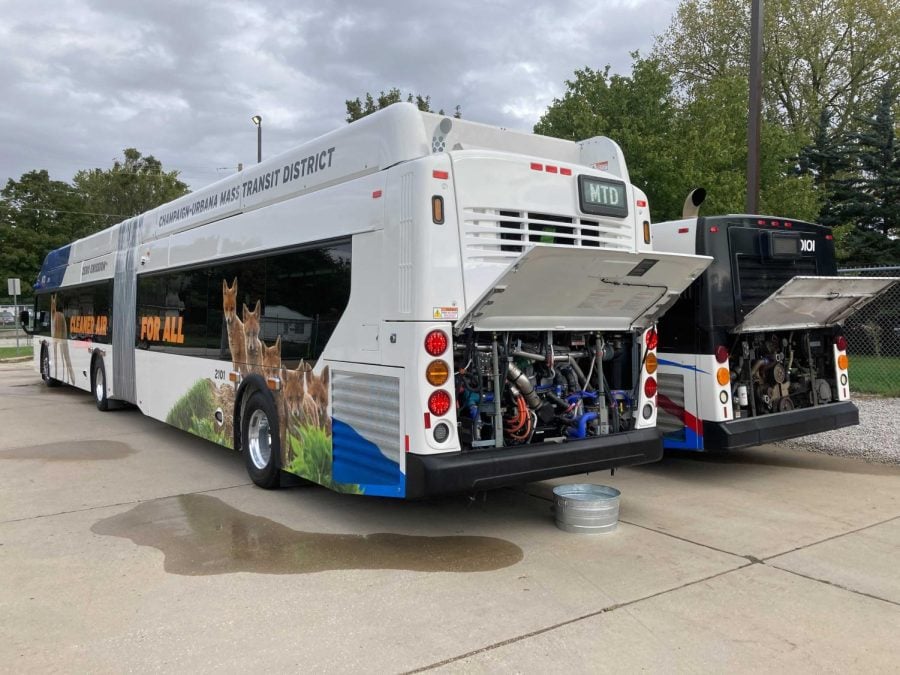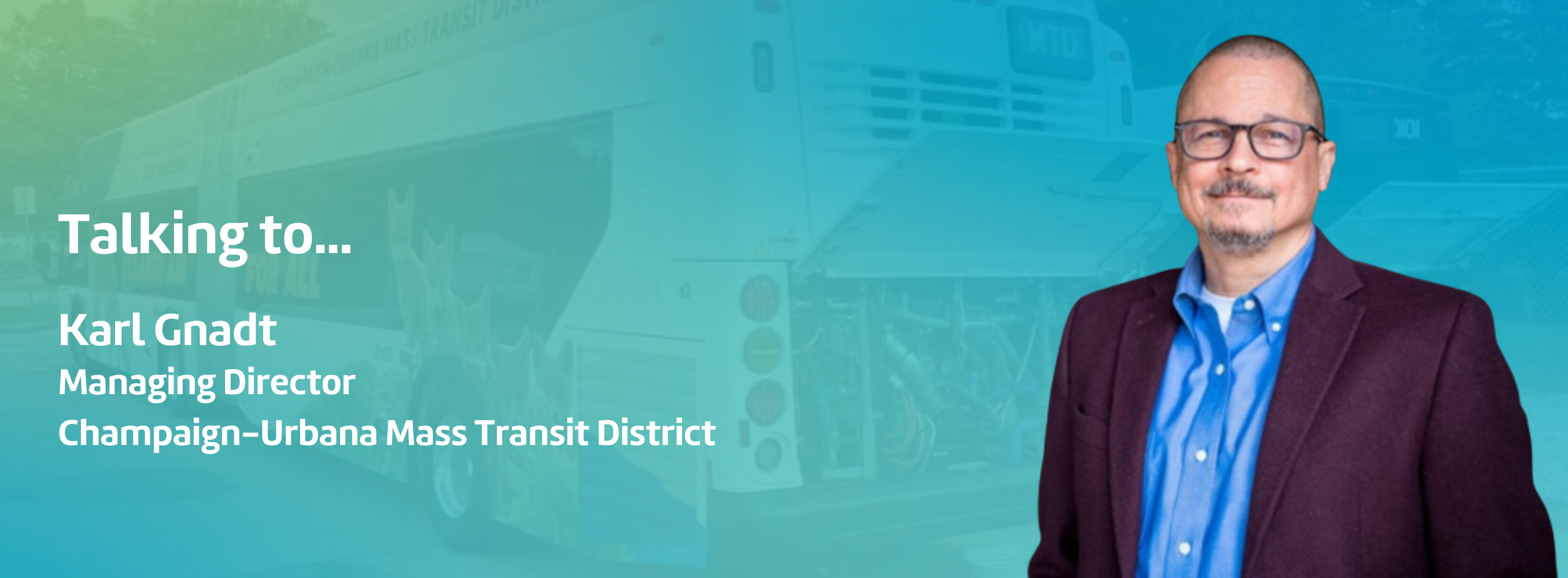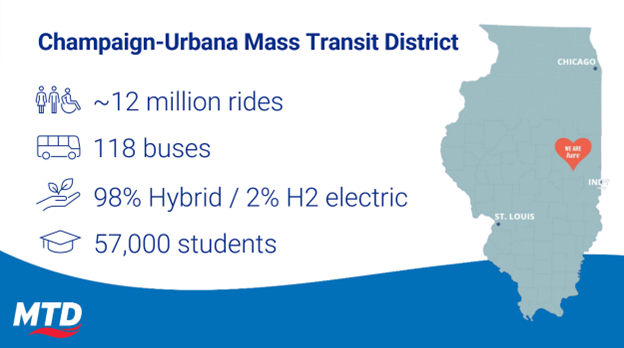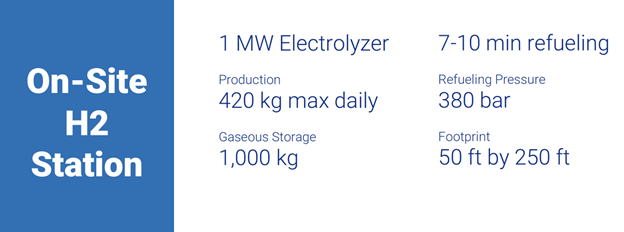
Karl Gnadt is the Managing Director of the Champaign-Urbana Mass Transit District (MTD) in East Central Illinois. With a strong focus on providing the community with clean and effective public transport, he is leading the agency’s transition to true zero-emission operations.
In this interview, Karl shares his experience of introducing hydrogen fuel cell buses in MTD’s fleet and their advantages in terms of infrastructure cost and long-term benefits.

What is your role in decarbonizing the Mass Transit District?
I'm the Managing Director of the Mass Transit District. I've been with MTD for just about 30 years, and I've been in my current role for the past 10 years.
We provide all the public transit for the Champaign, Urbana, and Savoy communities, but also the University of Illinois - a large BIG-10 University with over 57,000 students plus faculty and staff, which adds 15,000 to the total.
As a transit agency, we are very well integrated into the region. The University of Illinois is a highly-regarded engineering school, so there's a lot of community interest in sustainability and our environmental impact. As a part of that, MTD has launched our zero-emission fleet program, and we are transitioning to hydrogen fuel cell electric buses.

Why are fuel cell electric buses the right choice for your transit agency?
When we started, we identified three goals that we thought were important to us.
One was to be able to go zero-emission, but we want to be honest when we say we are zero-emission. Decarbonizing transport to remove emissions from urban centers is a worthwhile goal. That is valuable. But if the energy source for those zero-emission vehicles is still burning coal, like the grid in Central Illinois, then you're not truly zero-emission, you’ve simply moved the emissions upstream. Our goal is to be zero-emissions from beginning to end. As such, we have built a hydrogen electrolyzer on-site that is 100% powered by an adjacent solar array. This allows us to achieve zero-emissions in our hydrogen production. Combined with fuel cell electric buses, we truly provide a zero-emissions public transit solution.
The second goal is to reduce, and eventually eliminate, our use of fossil fuels throughout our entire system. We're not using diesel in any of our buses by utilizing solar energy to produce our hydrogen. As a side note, many battery electric buses have diesel-powered auxiliary heaters on board to provide the necessary heat to keep riders comfortable in winter. Even those battery electric vehicles, which claim to be zero-emission, are not. We don't have diesel auxiliary heaters on any of our buses. The fuel cell generates enough energy to heat and warm the bus cabins.
The third goal, and the most important one for us, was to avoid any negative impact on the operations of our public transit services. We are a transit agency, after all.
There is a distinct difference - and we are community focused. The technology you employ impacts how you deliver transit services. Battery electric buses have limited range and significant recharging requirements to keep them in operation. You can only use those vehicles on certain routes. We want to treat every bus equally and plan our service for our customers.
You mentioned having to heat the bus cabins in the winter. Has fuel cell technology affected any performance or availability of your buses?
Not at all. Cold weather environments are a frequent discussion point for battery electric buses. The already limited range of battery can sometimes be cut in half depending on how cold it gets in that community. That's a significant problem.
We have not encountered this issue with fuel cell-powered buses. The fuel cell keeps the batteries optimally charged while the buses are in service. You don't drain energy from the bus like you do with a pure battery electric solution. We haven't seen any performance hit in cold weather, which is a very good thing.
What are the lessons that you've learned so far?
We are now in talks about ramping up additional training for our maintenance technicians. The primary focus is getting the entire pool of maintenance technicians trained and educated on high-voltage systems. These vehicles have unique aspects, and we need to get the whole employee group properly trained. The energy transition is affecting a lot of aspects of public transit. Having knowledgeable staff ensures they remain in tip-top shape and on the road.

What advice can you share with other transit agencies considering transitioning their fleets to zero-emissions?
Everybody has their own circumstances and variables they have to deal with. I encourage those responsible for investigating the options to have a decision-making matrix that includes the next 20-30 years and the next 25-100 vehicles.
Many transit systems look purely at the acquisition cost of battery electric vehicles versus hydrogen fuel cell electric vehicles. When you're only buying a few vehicles, the battery electric plus charging infrastructure is less than the hydrogen fuel cell bus plus its required infrastructure. But when you get to scale, the cost-effectiveness of each technology flips. At scale, battery electric gets exponentially more expensive than fuel cell buses because you have to buy chargers for virtually every single bus. This is compared with purchasing hydrogen fuel cell electric buses - once you get your refuelling infrastructure in place, you can add as many vehicles as you want after that, and you're only paying for the vehicles, not the incremental recharging infrastructure. The overall per-unit cost goes down with more fuel cell-powered vehicles in your fleet. At the same time, the per-vehicle cost increases as you buy additional battery electric buses. You need to think long-term.
The final thing to note is that our community loves these vehicles. They get excited when one pulls up, so one of my biggest regrets about this project is that our initial purchase was just two 60ft articulated hydrogen fuel cell electric buses. I wish we had gone bigger with the initial purchase - we would have been better off with 10 vehicles to begin with.
Riders notice when the fuel cell bus fleet is off the streets. I encourage transit agencies to consider ordering more with the initial purchase, whether it's battery electric or fuel cell electric. I suggest going big and shooting high. Get 10 vehicles if you can, instead of just two or three.
The Hydrogen Fuel Cell Bus Council has been an excellent resource for us, and I encourage agencies wishing to explore this technology to contact them for more information.